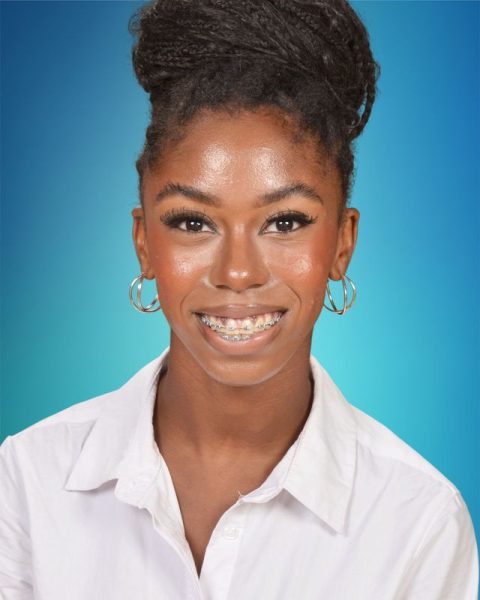Ethnic backgrounds are a vital part of who we are, but what happens when the extinction of ethnic cultural practices happens before our eyes? The erasure of African American culture is due to capitalism, generalization, and evolution.
I was born to a Haitian mother and an African American father. When I was younger, I was predominantly raised around my mother’s side of the family until her untimely death in 2014. This led to a significant shift in my familial and cultural environment.
Studies show that, within a household, children tend to come in contact with the matriarch’s culture more than the patriarch’s, simply because children spend more time with their mother.
Brain cancer consumed my mother to the point where help from my grandmother was vital, requiring her to move in with us. So, the only culture I experienced was Haitian culture after my mother’s death. As I’ve gotten older, I’ve strayed away from my Haitian ancestry to the point where I feel I can’t relate to it, causing me to become hyper-aware of my cultural surroundings.
Due to the influx of black immigrants and the generalization of all Black Americans, it’s shocking that many people don’t understand what an African American is. According to the Merriam-Webster dictionary, an African American is a “direct descendant of Africans who were enslaved in the U.S. or any area that became part of the U.S.” People thinking of the words “African” and “American” cause them to assume that immigrants from Africa are African American.
African Americans have over 400 years of rich history and culture within this nation, and their contributions are constantly undermined by not only other races but also other ethnicities within the African Diaspora. Much of Afro-American culture can be connected to the Black church, starting with creating Sacred music, a genre surrounding Christian evangelicalism. This genre is the root of songs like “When the Saints Go Marching In” and “Wade in the Water,” which are known as Negro Spirituals.
The Black church has been African Americans’ safe haven for centuries, in the belief that the only one who will save them is the Lord.
Since passing the Civil Rights Act in 1964, youth attendance at church has subtly declined over the years. Ascribing this to the belief that since we no longer face those hardships, there is no reason to call on a Savior. This leads to the future loss of the art of gospel-rooted vocalists. Vocalists such as Aretha Franklin, Whitney Houston, Lauryn Hill, and Stevie Wonder are essential to music as we know it today. In my opinion, there’s a lack of vocalists because of the lack of teaching of the gospel music style.
Faced with the hardships of American Chattel Slavery, many Afro-Americans lacked hope for what was to come in the future. They expressed this through music, creating The Blues. These two are the root of many popular genres today, such as jazz, Gospel, Rock, Country, Soul, Funk, Doo-Wop, Zydeco, Bounce, R&B, and Hip Hop, which all stem from Spirituality and The Blues.
African American culture has been at the forefront of American media since the mid-to-late 60s. Many believed that making African American culture the face of American entertainment would help the world’s movement to push inclusivity. Still, others tend to overlook racism’s ugly, hypocritical friend, cultural appropriation.
Most of the time, people misconstrue cultural appropriation for cultural appreciation. Individuals like Sam Phillips are a part of the reason why many people tend to gatekeep culture. Sam Phillips was the founder of Sun Records, who was specifically looking for “a white man who could sing Black.” Later, stumbling upon a man who many called revolutionary, The Goat, or the King of Rock and Roll, Elvis Presley.
Even though I agree with the sentiment that Elvis was an influential part of music history, society tends to forget the part where he stole his onstage persona and some of his songs from artists such as Little Richard and Big Mama Thorton. Songs like “Tutti Frutti” and “Hound Dog,” which made their most recent appearance in the 2022 movie “Elvis,” made progress in modern media by acknowledging Big Mama Thornton in the credits. I often hear people talk about how Elvis’ music and persona on stage were “outside the box” or “crazy” when, in reality, Afro-American artists were his muse for years.
The problem arises when a piece of African American culture is exploited, and the representative is a non-African American because it causes cultural erasure.
This problem also ties into the conversation of Ebonics or, in most recent years, AAVE (African American Vernacular English) being deemed improper English. Ironically, this has been capitalized on so much that when people hear certain terms or phrases, they believe it’s “Gen Z slang.” The American media has a reputation of taking a term from AAVE, then capitalizing off of it to the point that after a certain period, if you are to say said word, you are deemed “cringy.” This can be seen with words like “lit,” “bussin,” and most recently “gyatt.”
The generalization of Black people in America is detrimental because Black people are not a monolith. Over 12.5 million Africans were brought to the Americas during the Atlantic Slave Trade. The largest number of slaves went to South America, followed by the Caribbean. North America comes in third, yet somehow, only African Americans are the ones who “Don’t know where they come from.”
On TikTok, the blatant ignorance of people can be seen in the discussion of what an African American is and what it is considered an ethnicity. Many Black Caribbeans tend to claim that African Americans don’t know where they come from. Hypocritically seeming to forget our ancestors got on the same slave ships but were just dropped off at different ports. They say this because the U.S. is a predominantly white country, and secondly, because African American culture is so widespread that it is considered American culture. But, the generalization comes when the term “Black culture” is used.
African Americans use the term Black and African American interchangeably. Considering the cumbersome history, descendants of enslaved Africans’ roots were stripped away from them during the process of colonization. As a result, when someone asks an African American what they are, the answer is usually, “I’m just Black.” In reality, that is the only thing we know for sure about ourselves.
At first, I was confused because, in my mind, I couldn’t understand how there could be one universal culture for all Black people until I realized African American Culture is the culture being referenced.
The erasure of African American culture is evolution. Simply because the number of Black immigrants and Afro-Americans is starting to even out in America, which I am a result of. The rise of interracial marriages across all cultures and ethnicities is creating a more homogenous world.
Because of globalization, there isn’t much society can do to preserve a culture besides gatekeeping. Gatekeeping can be seen as a good or bad thing, depending on your perspective; I am not mad at it, more so understanding. Gatekeeping alone isn’t going to stop the erasure of cultures, so all that can be done is to just sit back and watch from a distance, trying to hold onto what we have left.








